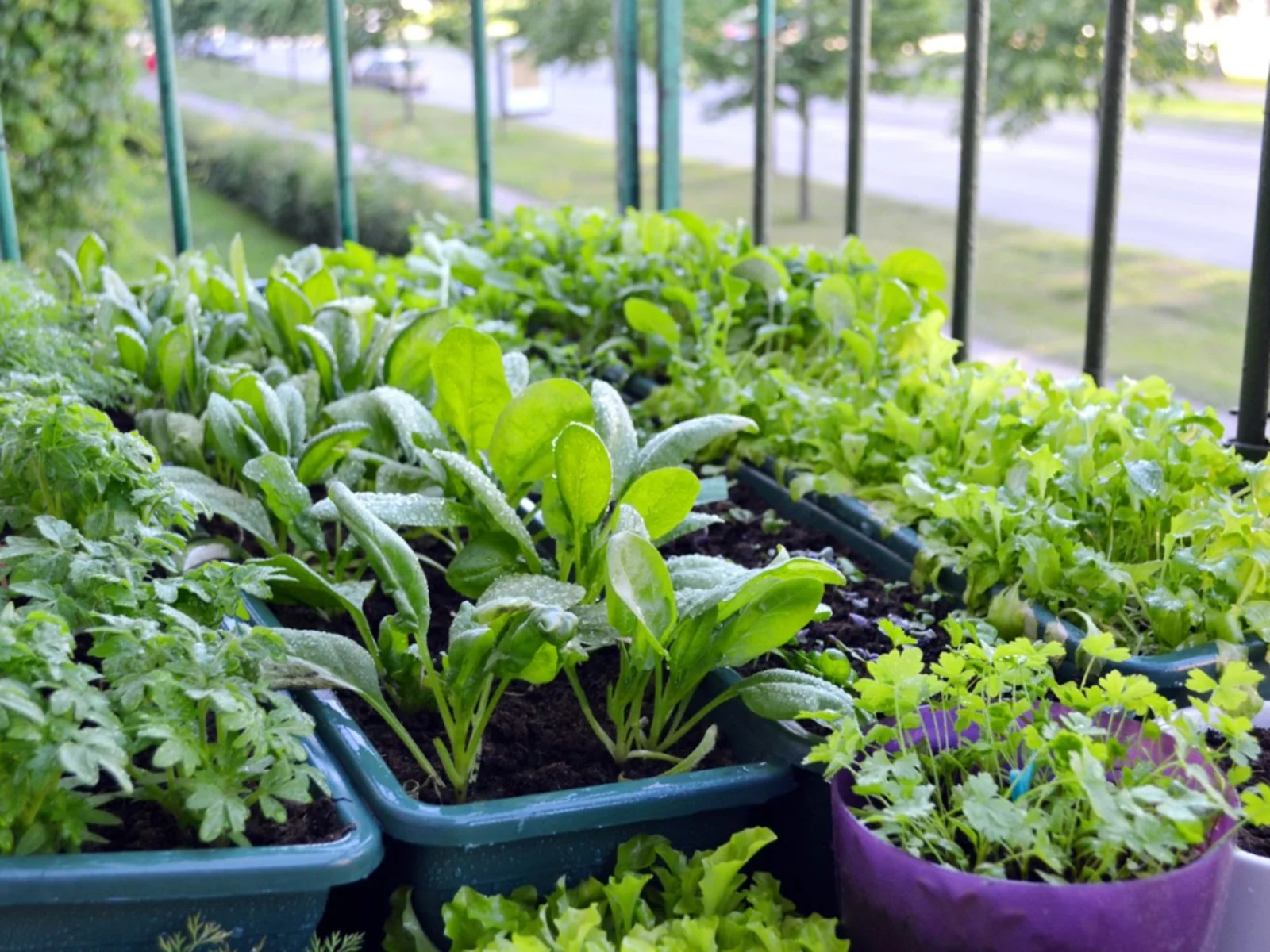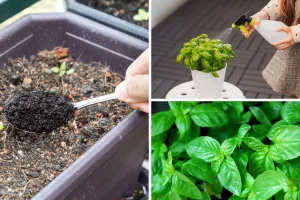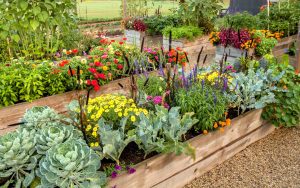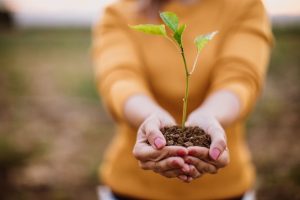Gardening is more than just fun; This is a great way to connect with nature in a meaningful way. Organic gardening is more than just an option for those who have green skills and care about the earth and the food it provides. It’s a way of life. Using organic methods not only ensures that your garden grows well, but also protects the planet and encourages people to live sustainably. In this complete guide, we’ll show you our top ten organic gardening tips to help garden enthusiasts create lush, chemical-free gardens that are good for nature and the environment.
1. Start with Healthy Soil
Healthy soil is the most important part of a good organic garden. Invest in high-quality organic compost that is rich in nutrients and beneficial microorganisms. Rich soil helps plants develop strong root systems, retains moisture in the soil longer and improves the overall health of your garden.
2. Choose Native and Adaptable Plants
Choose plants that are native to your area or suitable for the climate in which you live. These plants have already adapted to your environment, so they don’t need much help from you, such as extra watering or chemical treatments. By picking native species, you help protect local ecosystems and increase biodiversity.
3. Practice Companion Planting
Pear planting means placing plants that grow well together. Some plants repel pests, make the land more fertile, or naturally shade nearby crops. For example, marigolds repel insects, and basil makes tomatoes taste better and grow better. By encouraging these plant relationships, you can create a garden environment that functions well and takes care of itself.
4. Use Natural Methods to Eliminate Pests
Use natural methods to keep pests out of your garden so you don’t have to use dangerous chemicals. Add good insects such as ladybugs and lacewings that eat common garden pests. Neem oil, diatomaceous earth and garlic spray are all healthy ways to repel pests. To keep your garden healthy, check your plants regularly and address any pest problems immediately.
5. Use Mulch to Retain Moisture in the Soil
Mulching is a very useful tool in organic farming. Applying a layer of organic mulch, such as straw, leaves or compost, can help retain moisture in the soil, keep the soil at the right temperature and prevent weeds from growing. As the mulch breaks down, nutrients are added to the soil, making it more fertile. In addition, mulch provides a habitat for beneficial organisms, which is important for a healthy garden environment.
6. Use Natural Fertilizers
Choose organic fertilizers such as compost tea, fish emulsion and seaweed extract. These natural sources of nutrients are better for the soil than chemical fertilizers because they have no negative side effects. Organic fertilizers release nutrients slowly, so they nourish your plants in a healthy way over time. If you use it regularly, it can help plants grow well and bring more life to your garden.
7. Use Drip Irrigation to Save Water
Saving water is an important part of healthy gardening. Drip irrigation systems deliver water directly to the roots of plants, reducing water waste and improving water use. Additionally, collecting rainwater in barrels provides a natural and long-lasting water source for your garden. By saving water you can reduce your impact on the environment and help make the world greener.
8. Store Seeds Responsibly
Save seeds from organic plants to preserve biodiversity and history. To store seeds responsibly, only obtain seeds from the strongest, healthiest plants. Saving seeds can keep different types of plants alive, making them more resistant to diseases and environmental changes. Sharing seeds with other gardeners builds a sense of community and helps protect biodiversity in agriculture as a whole.
9. Try Introducing Pollinators
Pollinators, such as bees, butterflies and birds, are important for the way many plants reproduce. Make the area pollinator-friendly by planting native flowers, shutting off water sources and avoiding the use of chemical pesticides. A pollinator-friendly garden not only makes your garden more productive, but also helps keep the area’s ecosystem healthy.
10. Always Maintain an Open Attitude towards Learning
The agricultural world is large and constantly changing. Stay interested and willing to learn new skills, plant species and green ways. Join gardening groups in your area, attend workshops and read gardening magazines from trusted companies. Continuous learning not only improves your farming skills, it also helps you better understand the natural world, making you a better steward of the environment.
Conclusion:
In organic gardening, a green thumb not only cares for the plants, but for the entire environment. By using these top ten organic gardening tips, you can begin a journey that celebrates the harmony between humans and nature. Your garden becomes more than just a collection of plants; it will be a place where life thrives, biodiversity flourishes and the planet is valued.
Remember, organic farming is not just a series of steps; It is a way of thinking and a commitment to respecting the natural processes that sustain life. When you grow your garden organically, you are doing your part to make the world greener and healthier. Every seed you plant, every pest you eliminate naturally, every drop of water you save shows how much you care about caring for the world.
So let your green fingers guide you in a dance with nature. With every conscious action you build not just a garden, but a living example of the beauty of organic harmony – a sanctuary where both plants and people can thrive in sustainable, interconnected balance with the world around them.
FAQs:
1. How does gardening improve soil health in organic gardening, and why is it so important for the overall health of your plants?
Learn more about the importance of healthy soil and discover ways to enrich it naturally. Understanding soil health is the cornerstone of successful organic gardening and ensures strong plant growth and a thriving garden ecosystem.
2. What are the most effective natural pest control methods? How can gardeners integrate these seamlessly into organic gardening practices?
Explore natural solutions like beneficial insects, neem oil and companion plants for pest control. Find out how these methods can protect your plants without creating harmful chemicals, creating a balanced and pest-resistant garden.
3. Why is water conservation important in organic gardening? What are the benefits of using drip irrigation systems and rainwater harvesting?
Dive into the importance of water conservation and discover eco-friendly methods such as drip irrigation and rainwater harvesting. Learn how these techniques can minimize water waste and promote efficient and sustainable watering practices.
4. What role do pollinators play in organic gardening? How can gardeners attract and support these important insects in their gardens?
Uncovering the important role of pollinators in plant reproduction and biodiversity. Learn how to create a pollinator-friendly environment to ensure the productivity and health of your garden by selecting specific plants and providing the right habitat.
5. How can gardeners make a positive contribution to biodiversity and environmental protection through responsible seed saving and sharing practices?
Discover the art of responsible seed saving and learn about its impact on biodiversity. Learn the importance of sharing seeds within your community, promoting a sense of solidarity and contributing to the conservation of different plant species.



